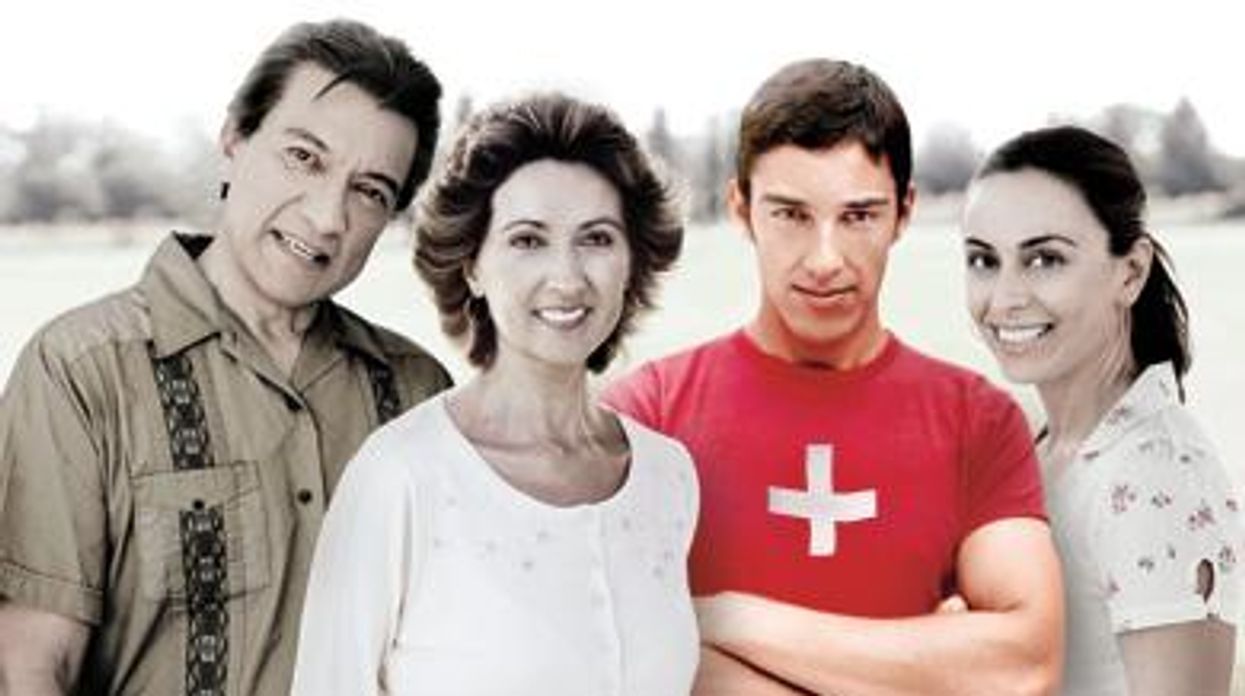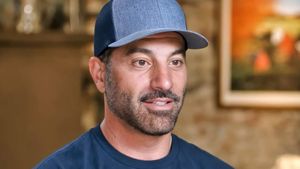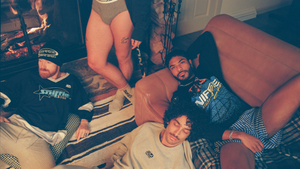CONTACTAbout UsCAREER OPPORTUNITIESADVERTISE WITH USPRIVACY POLICYPRIVACY PREFERENCESTERMS OF USELEGAL NOTICE
© 2025 Equal Entertainment LLC.
All Rights reserved
All Rights reserved
By continuing to use our site, you agree to our Privacy Policy and Terms of Use.
We need your help
Your support makes The Advocate's original LGBTQ+ reporting possible. Become a member today to help us continue this work.
Your support makes The Advocate's original LGBTQ+ reporting possible. Become a member today to help us continue this work.
Maria Mejia's childhood in Miami was far from idyllic. By the time she reached 14, Mejia couldn't stand her home environment--which included a strict father and a sexually abusive uncle--so she ran away from home. Mejia says she ended up running with a gang until the age of 18, when she met her first boyfriend.
In the early 1990s, after four years away from home, Mejia decided it was time to turn her life around. She returned to her mother, who by then was separated from her father. Part of the young woman's plan to turn over a new leaf was joining Job Corps, a vocational education program for young people. She went to a Job Corps facility in Kentucky for medical screening and the typical 60 days of training. When the doctor tried to get her to come in to the clinic after the routine screening tests, Mejia initially ignored his requests out of fear; a smoker, Mejia was afraid she had cancer. Instead, when the doctor was finally able to sit her down, she learned that she had HIV.
"I was not a drug user, and back then it was still thought of as a gay man's disease," Mejia says. "It's not that I was sick or anything. I never thought it could happen to me."
Despite being assured that she could stay at Job Corps, Mejia was so devastated that she quit the program and again returned to her mother.
"I wanted to die at home and not in Kentucky," she says. Mejia packed up her life and headed back to Miami. She then broke the news to her mother, who offered her full support. However, Mejia's mother asked her not to tell the rest of her family about her HIV status out of fear that she would be ostracized.
"It came from a good place," Mejia says. "There was a lot of stigma back then. She said, 'I believe you're not going to die from this, but you must not tell anyone. If you get sick, we'll tell them you have another disease. We'll do the research.' "
Mejia, her mother, and her younger brother moved to Colombia, their native country, where she lived for the following decade without medication. Instead, Mejia's mother opened a health food store and used the products to help her daughter live the healthiest life possible. Mejia and her mother did disclose her status to an uncle, a local doctor who regularly monitored her cell counts. Mejia and her family also used their faith to ground them through the rough times.
Read the full story at HIV Plus Magazine.
From our Sponsors
Most Popular
Bizarre Epstein files reference to Trump, Putin, and oral sex with ‘Bubba’ draws scrutiny in Congress
November 14 2025 4:08 PM
True
Jeffrey Epstein’s brother says the ‘Bubba’ mentioned in Trump oral sex email is not Bill Clinton
November 16 2025 9:15 AM
True
Watch Now: Pride Today
Latest Stories
Six key takeaways from Trump's speech to the nation, including 'transgender for everybody'
December 17 2025 10:51 PM
Marjorie Taylor Greene’s bill criminalizing gender-affirming care for minors passes with Democrats’ support
December 17 2025 6:47 PM
True
I didn’t just run the world’s major marathons. I changed them
December 17 2025 4:31 PM
Pam Bondi wants FBI to offer bounties for ‘radical gender ideology’ groups, leaked memo shows
December 17 2025 3:17 PM
Rock Hudson had a 'legendarily large penis,' Armistead Maupin says
December 17 2025 3:05 PM
California councilmember blames daughter becoming a lesbian on sexual trauma
December 17 2025 2:26 PM
California hospital will continue youth gender-affirming care after families protest
December 17 2025 11:18 AM
Tennessee whistleblower says library board chair sought private data as part of state's book purge
December 17 2025 7:00 AM
Lesbian federal worker pleads for answers about wife trapped in immigration detention limbo
December 16 2025 5:08 PM
Michigan Republican U.S. Senate candidate Mike Rogers surrounds himself with hardcore LGBTQ+ rights opponents
December 16 2025 2:53 PM
True




































































Charlie Kirk DID say stoning gay people was the 'perfect law' — and these other heinous quotes